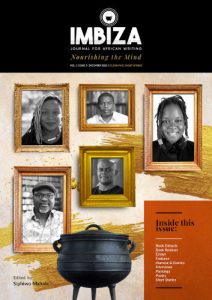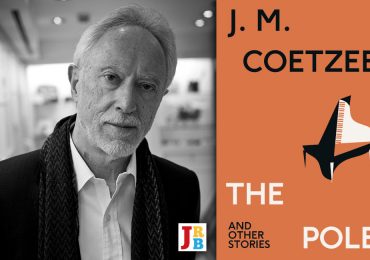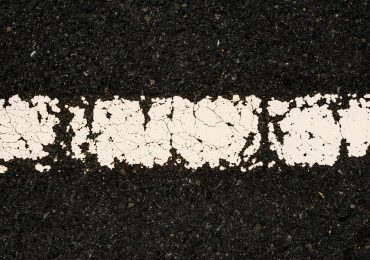The JRB presents an excerpt from ‘Everywhere, Nowhere’, new short fiction by Lidudumalingani, excerpted from the new edition of Imbiza Journal for African Writing.
The new edition of Imbiza is out today. Scroll down for details.
Everywhere, Nowhere
As soon as I make my way out of Park Station, onto the parking lot at ground level, I find all the city’s moving parts in choreography. There is not an inch of space in between the cars and the people. It’s morning and everyone is rushing off to somewhere. I stand in one spot for a moment, and I hear the cars, the buses, the taxis, the trains, the people, the vendors, and the Park Station schedule announcements swirl around my head. The Metrorail train arrived at the Krugersdorp Station two hours behind schedule and when it arrived at Park Station, it was late by at least another thirty minutes, and so I needed to hurry to Auckland Park, to the University of Johannesburg, where I am going to pursue an undergraduate study in the Department of Architecture. In my first two years at UJ, up to the day my mother passed on in an accident at the end of the second year, she believed I was studying to be a doctor. Even now, sometimes I can hear her deep voice repeatedly saying ‘Doctors make money. Doctors make money’, the words she said to me on the day I left home for university and every other day I was home for holidays.
On the weekend of my mother’s funeral, I need to work on a speculative essay on Apartheid zoning, mapping and Mbongeni Ngema’s song ‘Stimela Sasezola’. I manage to write a total of three sentences that whole week and only moved a comma during the weekend of the funeral. On the Monday, I call my father, whom I had not spoken to in years, and he tells me to go ask my dead mother to pay for my studies. I show up in class on the following Friday, having not slept in a few days, having not bathed, having not eaten. I make excuses about why I was not submitting my essay and promise to submit it in exactly a week. I slump into depression, and miss too many classes. Professor Warner-Witham emails me twice to ask me how the essay is going and I ignore her.
A month later I return to school and can’t make out the school entrance from the exit and in class I can’t tell a floor plan from a wall plan, modern architecture from expressionist architecture. I doze into and out of concentration and begin to see only scribbles on the board whenever a class is on. Soon, I move from being a top student, to being last, to being not a student at all. At the beginning of the third year, I had not made good marks to earn a place in the student accommodation, and the university security locked me out of my room. I’d never thought that my heart would be broken over that soulless and formless student resident building. After that, I spent the nights at the skating park by the bus station and Milpark hospital, further down from the university, along Empire Road. I attend book launches at Love Books and Book Circle in Melville for the food and wine. Three months later, at a book launch in Brixton, at the ground level of an Architectural firm, I bump into Professor Warner-Witham. I had read the essay in the book over two days at Love Books before the launch and found them uninteresting. Writers thinking of the city from the edges. By then, three months into being homeless, I bathe at the Braamfontein Spruit, not far from Blairgowrie, just before the spruit crosses over Conrad Drive. The minute I see her through the crowd, talking to the Head of Department next to the counter, with a glass of red wine in hand, I sink into the back row, close my eyes, and listen. Throughout my schooling I listened like this, finding concentration in the darkness, only hearing the voice of the teacher. I was grabbing dinner to go when the Professor cornered me before I could even make it to the wine section. Until then I had avoided attending anything where there was a chance of meeting any of my former classmates or lecturers. I had gone to this launch because it had been a month and I had begun to disappear into the thousand homeless people in the city. I wanted to escape before she finished talking to the editors of the book, but I had gone there for dinner, and I needed the wine, and I was not leaving without my dinner. Professor laughs when I confess this and says I hadn’t lost any of the sharp brains that she saw in class.
‘Where have you been anyway?’ she wants to know.
‘Everywhere. Nowhere.’ I respond evasively.
‘That sounds like a paper abstract,’ she replies.
But it is also true, that month I had been everywhere and nowhere. I had lost track of time and place and self. On our way down to varsity, where she left her car, because off street parking is not safe, we stand underneath the Sentech Tower for a while.
‘It’s so … mesmerising. Almost two hundred and fifty meters high. It was taller when I was a child,’ she says and giggles.
The tower appears to be falling on us. I gulped multiple glasses of wine at the book launch while waiting for her so we could leave. Without thinking I grab her by hand, as one does a lover before they run towards the abundance of love, and drag her down the road. She allows without hesitation. It is not night yet but the sun has long set and the night is crawling in. The street lights on Henleyweg are not all on and a few of the light bulbs are flickering. She hands me her purse, lifts her dress to her waist and runs ahead of me down the road. I can’t keep up. If I walked any faster the wine will shoot up my stomach and out of my throat. In the distance, in the dying day, in the middle of the road, I only see glimpses of her every time she passes one of the street lights that are on. Still, she holds her dress to her waist, her head looking up to the sky, and still running. For the first time I see her legs. Long, thick, white. She reaches the bottom of the road and yells at me to hurry the fuck up, but I can’t and I don’t.
‘We used to run down this road as kids. My parents hated it,’ she says as soon as I reach her.
We walk around the SABC building, and at the entrance of the university, the security guards wave her on, judgmentally stare me up and down. Her Porsche Cayenne parks on the third floor in the Architecture department, in the G3 parking lot, that faces towards the city. We drive out of the parking lot into Bunting Road and then into the city.
‘Really, everywhere, nowhere? Where did you get that one?’ She asks amused after a short silence.
I rest my head against the window and watch the city go by.
I already had too much to drink at the book launch and it doesn’t take me long to pass out on her Nordic velvet couch. I woke up in the morning in her bed, naked, hungover, and still sleepy. I catch glimpses of her getting out of the shower into the bedroom. The legs are still long, thick, white, but that is all I remember of her body. I don’t remember the stomach skin that folds underneath the bra she is wearing, nor the full rounded boobs, nor the thick beautiful ass that she jiggles as she walks around the room. She teases me about passing out with a glass of red wine in hand.
‘Damn, motherfucking-self-made-forced gated neighbourhoods,’ I mutter to myself.
‘You can stay if you want. Just seeing an old friend for coffee,’ she offers.
‘No, I’ll go,’ I say.
‘Too bad, last night was amazing. You want me to drop you off? Get you an Uber?’
‘I’m not going far,’ I insist.
By the time she drives out of her house, down Barkston Drive, I am still walking down the road, contemplating the day, which on most days begins with a wash at the spruit, then the book shop, then food at some book launch. If both Love Books and Book Circle are not launching anything, I go to 44 Stanley, where there are multiple restaurants, and beg for food by the exit. I want to make a turn into the street ahead so she does not drive past me on the road but the street is closed off.
‘Bye. If you want to come around. I’ll be back in like two hours. I’m just going to Parktown,’ she says, sticking her head out the window. Anti-poor gated communities are everywhere.
The sun is out now and the sun rays pierce the trees down to the street. Her car shimmers in the sun rays, its Carpathian Grey colour turns into other colours, a green from the green leaves, brown from the dying leaves, until it disappears off the street. It takes her a long while to join Conrad Drive. By the time I arrive on Conrad Drive, emerging into the full beauty of the sun, she has long turned over the bridge on the spruit, taking her out of Blairgowrie, into the chaos of Jan Smuts Drive, past Hyde Park, Rosebank, then into Parktown. Underneath the bridge, where every morning and afternoon a car comes close to driving into another, there is construction. I stand and watch for a while enjoying the sun on my back. Men in overalls scoop the soil and toss it over their heads, making a way for the water to flow past. The water flow of the spruit edges the hip of soil and puts the soil back where it had been. Nature always fights back.
Down the spruit, past the dog park, church members in white robes with yellow collars and green belts stand in the waterfall and one by one ascend to heaven. They hold hands under the water, steady their feet on the rocks, kneel underneath the waterfall, and disappear. I watch in awe until they appear again, from behind the veil of the waterfall, the veil of heaven, drenched, anointed in blessings. There are more than fifteen of them. Men, women, and children. After returning from heaven, a man ushers them into the shallow part of the water in front of the waterfall, and they sit there, not speaking to each other. I imagine that is how you return to earth from heaven. I find myself standing under the waterfall, unaware how I got there, but I don’t make the decision to leave. A stiff hand holds me down on top of my head. I shiver in the cold water and then ascend to heaven. For a moment, I don’t hear or see anything. And then I hear someone pray, in multiple voices, in different tones, in tongues. I open my eyes and realise that everyone is praying, with their eyes closed, open hands in the air. I remember my mother. ‘Pray with your hands open so someone else doesn’t catch your blessings.’
It takes another month for the city to completely consume me. I drift far from Milpark skating park, from the book shops in Melville, into the city centre, into the depths of hell. I lose my clothes. I lose my identification card. I stand on the streets, watch the brutalist architecture of Johannesburg age, and forget to beg. I steal a pen and paper at a shop and sketch malleable buildings, multifunctional highways, and floating bridges. I sketch my soul and erase it. On the streets, I meet another boy, and he tells me he lives in a torture tunnel. I move in with him and realise the tunnel is at Drill Hall and is haunted by tortured and dead prisoners. When he is on drugs, he wakes up from sleep and runs out of the tunnel, skulls of the dead soldiers chasing after him. Our tunnel is the last one in a row of seven tunnels. In front of the tunnels is a long walking corridor that is illuminated by green light bulbs. Every day, we emerge from the tunnel by only a short flight of stairs, into the city, into chaos. Drill Hall, from which underneath our torture tunnels are situated, is a building of complicated history. Etched into steel on one of its walls, in a short summary, its history is chilling. It’s built on the site of a former non-white prison. There are always overlapping histories in cities, but this, this is dancing on top of other people’s blood. When we exit the gates in the morning, our bodies deformed from sleeping on makeshift beds, smelling from not having bathed, everyone stares, changes direction, quickens their gaits. On the day I decide to leave Drill Hall, after a few months of staying there, I don’t tell anyone, I simply leave in the morning, and never come back. When one of us does not come back, and their absence stretches into days, we set a paper on fire and someone holds it in their hands until it burns them, then we know that the spirit of the disappeared soul has been guided home. I imagine they did the same for me, except I am not dead, instead I am drifting, in the North of Johannesburg today, in the South tomorrow. I move to Blairgowrie, with the plan to go see Professor Warner-Witham, but for weeks I never do. I find a bus stop along a quieter part of Blairgowrie and make it home. At night I hang some dirty sheets for shelter and during the day I keep them at the local power station by the park. Then I wash myself in the spruit, close to the horse-riding school, before walking all the way to Greenside, crossing over Emmarentia Dam, feeling like it is the water that holds up the bridge. I beg in Greenside from morning to night and develop a palette for vegan food.
The cold nights intensify. One night I wake up and think I have lost my legs. I touch them to make sure they are still there. That night I find myself standing at the end of Barkston Drive. Up the road, around a corner, five houses away, is Professor Warner-Witham’s house. I stand too long and attract the security patrolling vehicle.
‘It’s not illegal to stand, man,’ I tell the security in the car and refuse to move.
He tells me not to find me there when he makes his patrolling round again in an hour’s time. I disappear into the city like magic. Everywhere. Nowhere.
~~~
- Guest City Editor Lidudumalingani is a writer, filmmaker and photographer, and winner of the 2016 Caine Prize. Follow him on Instagram and Twitter.
~~~

This is an excerpt from Lidudumalingani’s story ‘Everywhere, Nowhere’, which will appear in full in Vol. 1 Issue 5 of Imbiza Journal, out today (Tuesday 20 December, 2022).
Imbiza Journal for African Writing is a biannual publishing platform for creative writing, criticism, academic writing and intellectual engagement for African thinkers, cultural workers and activists.
The new issue of Imbiza features fifteen pieces of short fiction, including new work by Lidudumalingani and Sibongile Fisher, as well as literary essays on the form, including an essay by Nthikeng Mohlele reflecting on short story writing in South Africa titled ‘Art, Capitalism and Heritage’.
As Editor-in-Chief Siphiwo Mahala writes in his editorial for the issue, ‘If short stories signify the shape that the literary landscape would take in the future, this edition of Imbiza gives us a sneak peek into the future.’





